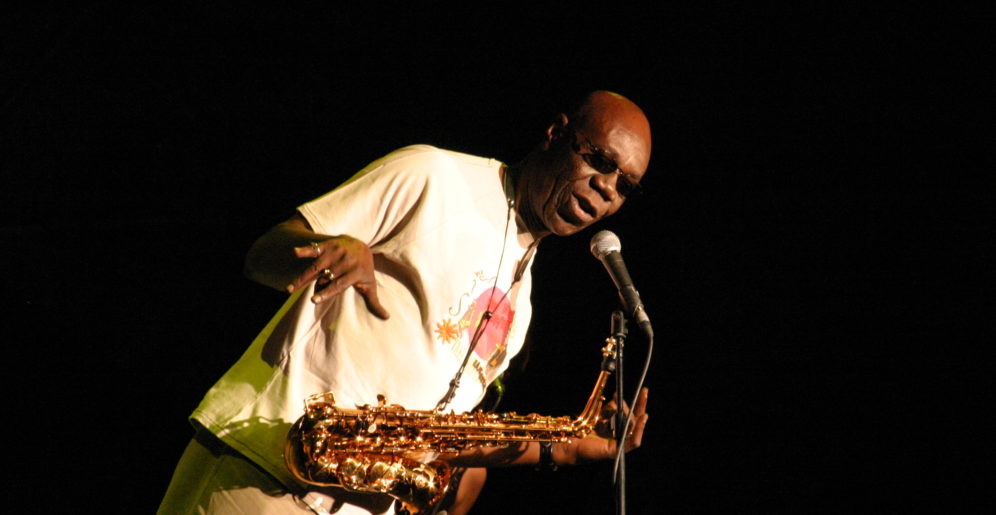
Music
rip manu dibango, ‘rona slays africa’s musical giant
Word has come that Manu Dibango, the great Cameroonian saxophonist and bandleader, died in a France hospital on Tuesday night at the age of 86, a victim of the coronavirus pandemic. Though his career stretched for more than six decades, kicking off as a bandleader of Congolese rumbas and jazz ensembles in both Africa and Western Europe, Dibango will forever be associated with 1972’s “Soul Makossa,” a song that captured the world’s imagination of African rhythm music turning into a smash hit.
Prominently, “Soul Makossa,” Dibango’s personal, soulful take on a contemporary Cameroonian dance music that mixed the rumba, West African highlife and American jazz-funk with electric bass and brass instruments, was also an inspiration to generations of musicians all over the world. An almost forgotten b-side of a Dibango single in Europe, was first played at New York’s influential early disco party, The Loft, where it was discovered by club and radio DJs, including WBLS’s Frankie Crocker, who put it in rotation and saw the song hit the American Top 40 in 1973.
An anthem in many New York dance and club communities, “Soul Makossa” was adopted by Puerto Rican, Cuban, Dominican and Nuyorican musicians of the Fania label, at the time creating a personalized mix of Latin jazz, pop and boogaloo that would soon be called Salsa. These so-called Fania All-Stars invited Dibango to join them on-stage at a sold out 1974 concert at Yankee Stadium in the Bronx, which was recorded into a best-selling album, and carried the myth of “Makossa” into Caribbean corners.
Less than a decade later, the “Soul Makossa” groove was resurrected by Michael Jackson and Quincy Jones for “Wanna Be Startin’ Somethin’,” the opening track on MJ’s chart-monster, Thriller, thesinger going so far as to sing Dibango’s vocal hook (“mama say mama sa ma ma kossa”) on its outro.
And when Rihanna used that same vocal hook on her 2007 hit, “Don’t Stop the Music,” a new generation of fans were introduced to Dibango’s timeless smash.
In the meantime, soul, disco and house across the world — especially in his adopted hometown of Paris —flocked to Dibango’s rhythms and beats, and he always seemed game to participate.
It is impossible to imagine the global explosion in and acceptance of African music that took place at the end of the 20th Century, without Manu Dibango’s enormous contributions. Thank you sir. Godspeed.
Get The Latest
Signup for the AFROPUNK newsletter



